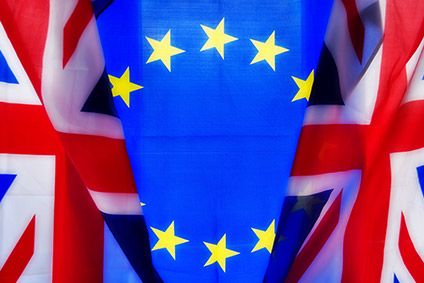
UK industry body The Food and Drink Federation (FDF) has urged MPs to think carefully before casting their votes on Prime Minister Boris Johnson’s Brexit deal tomorrow (19 October).
Johnson has returned from Brussels having agreed a withdrawal agreement with the EU but it now needs to be agreed by MPs in a rare Saturday sitting in the House of Commons tomorrow.

Discover B2B Marketing That Performs
Combine business intelligence and editorial excellence to reach engaged professionals across 36 leading media platforms.
However, FDF chief executive Ian Wright has made it clear he thinks the deal is flawed.
He Wright: “It is critical that the threat of a disastrous no-deal Brexit on 31 October be lifted. But, as they cast their votes tomorrow, MPs must also consider what this deal means in the longer term for food and drink, the UK’s largest manufacturing sector, and the supply chain’s four million employees.
“In our view, when compared with the deal secured by [previous UK Prime Minister] Theresa May, this deal represents a backward step in terms of securing frictionless trade with the EU.
“It also sets us on course for regulatory divergence from our largest overseas market on critical food safety, science and quality issues – areas where we are world-leading. Both of these will increase costs for businesses and consumers alike, and undermine the success of the UK’s food and drink industry – an industry already burdened by extensive, diverting and costly planning for a no-deal exit.”

US Tariffs are shifting - will you react or anticipate?
Don’t let policy changes catch you off guard. Stay proactive with real-time data and expert analysis.
By GlobalDataYesterday, EU farming and food-manufacturing representatives gave their support to the new Brexit agreement.
Farming union Copa and Cogeca, CELCAA – which represents traders of agricultural commodities – and FoodDrinkEurope, the food-manufacturing organisation, said the deal “paves the way for an orderly withdrawal … thereby providing predictability to operators”.
The agreement, announced yesterdat (17 October), will see the UK leave the EU customs union. The legal customs border would be between Northern Ireland and the Republic of Ireland. However, in practice, the border would be between the mainland of Great Britain and the island of Ireland. Goods would be checked at “points of entry” in Northern Ireland.
The UK would not levy tariffs on goods that remained in Northern Ireland but would if they items moved on out of the country. Every four years, the Northern Ireland Assembly – which has been suspended for more than two years – would vote on whether the arrangements should remain in place.
The agreement also stipulated the EU’s value-added tax (VAT) will apply in Northern Ireland but only on goods. That could mean Northern Ireland has different VAT rates to the rest of the UK.
In the previous withdrawal agreement negotiated by May, which the country’s House of Commons voted down three times, there was an article on “non-regression of labour and social standards”.
In the new agreement, this section was removed but was covered in the accompanying political declaration, which is not legally binding.
The declaration does say: “The parties should uphold the common high standards applicable in the [European] Union and the United Kingdom at the end of the transition period in the areas of state aid, competition, social and employment standards, environment, climate change and relevant tax matters.”
Looking ahead, the UK and the EU said they would aim for a zero-tariff trade deal between the two markets with unlimited quotas.
Political commentators are predicting that tomorrow’s vote will be very close as the government does not have a majority in the House of Commons and Northern Ireland’s Democratic Unionist Party, which has been supporting it, has said it will not support the deal Johnson has agreed.





